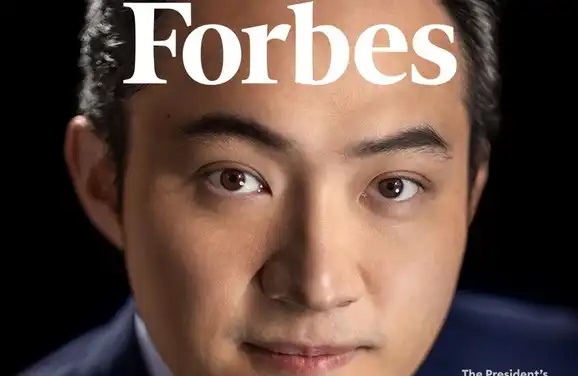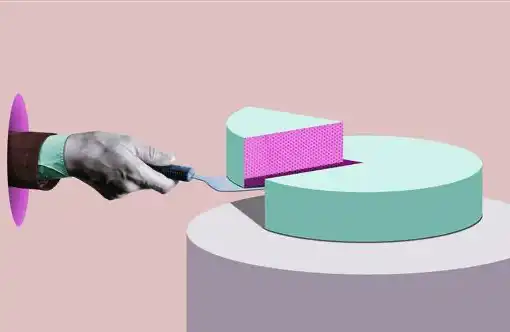Pump.fun Founder Accidentally Reveals Face in Podcast Recording, Related Meme Sadly "Taken Down"
When an Ethereum purist meets the most successful anonymous developer in the Solana ecosystem, what was supposed to be a discussion of product philosophy turned into a trial of "whether meme coins should exist."
Related Reading: "Pump.fun Co-founder Dialogue: I Don't Think My Product Killed the Market Cycle, Meme Coins Will Continue to Exist"
Anonymous Founder's True Face Exposed
Recently, Pump.fun founder Alon was interviewed on the "Ethereum-centric" podcast Bankless and at 21 minutes and 44 seconds, half of his true face was revealed, which was then used to piece together Alon's full-face photo.

The community quickly launched the alon meme coin on Pump.fun, but dramatically, Pump.fun removed the meme's avatar.

And this meme coin also had a short-lived life.

Currently, the frame showing Alon's face has been removed from that episode of Bankless.
Podcast Controversy Begins, Was It a Good Deed Turned Bad?
Pump.fun has always worn a mysterious veil since its inception, with few openly discussing how it rose to become the most PMF-driven, most profitable application of this cycle.
Last year, Alon was interviewed on Threadguy's podcast, becoming one of the few public channels to learn about the story behind Pump.fun. With the launch of the Pump.fun Swap platform, Alon recently appeared on the crypto podcast Bankless.
In the podcast, Alon discussed the 4Chan aesthetic style, Pump.fun's content moderation strategy, introduced the new product PumpSwap and creator revenue-sharing mechanism. Alon also responded to the competition with Raydium, explored the relationship between content, attention, and the market, and shared his views on the future of meme coins.
However, after this episode was released, it sparked some controversy, mainly due to the opening remarks by Bankless podcast host David.
David began by mentioning that viewers might be surprised to see the most successful application in the Solana ecosystem, Pump.fun, featured on an Ethereum-based podcast, especially since Bankless' platform has always taken a stance against meme culture, believing it would disrupt the market.
The following are David's exact words:
“In this interview, I did my best to give Alon a fair chance to articulate his views on meme coins while also not shying away from the reality—Pump.fun stands at the frontier of one of the most predatory market cycles in our industry's history, leaving behind a capital wasteland.
Perhaps initially, the meme coin speculation frenzy was just a relatively harmless, fun metaverse, but eventually, this trend evolved into a structured, systemic value extraction model, with the wealth ultimately flowing only to a few select participants.
Approaching with caution, I interviewed Alon.”

In other words, before this interview even began, the host had already set his stance, remaining cautious about the potential negative impacts of Pump.fun. On one hand, David believed it was inappropriate to give the Pump.fun founder a platform to speak, especially considering how many people lost money on that platform. On the other hand, he even feared that having Alon on the podcast might allow Pump.fun to use Bankless to whitewash its image and advertise Pump Swap.
Prior to this, I had never heard of him, and I have always been wary of some of the potential negative consequences of this project. I am unsure if Platforming such a project is reasonable, especially when it may inherently lead to harmful outcomes for users. At the same time, I also have to be cautious of another possibility—Is Pump.fun trying to leverage Bankless to whitewash its reputation? After all, they recently launched Pump Swap (a Solana-based AMM DEX), attempting a new product pivot.
Throughout this interview, the "Operation Berkshire" has been haunting my mind—If you're not familiar, it was a conspiracy in the tobacco industry: major tobacco companies colluded to openly deny the health risks of smoking, fund "pro-tobacco" research, undermine scientific consensus, and influence policy and public opinion by covering up facts to sustain industry growth.
Many in the community are displeased with how the introduction of this episode was handled, believing that if Pump.fun were on Ethereum, such a situation would not have occurred.
Pump.fun is merely a token issuance platform that has no authority to interfere with how users utilize it, and its fees are lower than any past or existing token issuance platform (even years later, still low due to scale). Furthermore, its founder is one of the most successful consumer entrepreneurs in crypto history to date. However, in the Bankless podcast introduction, they are portrayed as if they are criminals, although the show remains "open and inclusive," providing them with an opportunity to speak, heh.
This is the most hypocritical podcast opening I have ever seen. They had an excellent conversation with the founder during the show, but in the pre-recorded preamble after the show, they began to undermine their impact on the crypto industry and question their motives. If Bankless really treats their guests this way, how can they recommend entrepreneurs to appear on their show?
Last November, David posted, "A two-week-old token generation bot completed 15% of pump dot fun platform's trading volume today." It is quite evident that Clanker within the Base ecosystem appeared more "politically correct" on David's social media.

Returning to this podcast episode, after the recording, David continued to express in the edited preamble that meme coins are essentially like the impact of tobacco on public health—an "inevitably harmful product," and anyone working at Pump.fun would be motivated to deny this.
The following passage is also why David is criticized for being hypocritical—attempting to balance the issue on values is essentially a vague and evasive stance.
"We are still in the early stages of the crypto industry, and even more so in the development of meme coins; the future has yet to be written. Will the future meme coins become a more productive financial tool, or will they continue to be merely the market's 'drug'? This will ultimately depend on the leaders of the meme coin industry. Whether we like them or not, whether they are the 'cancer of the crypto industry' or the 'starting point for a fairer financial future,' the final outcome is still uncertain."
When Pump.fun's product revenue exceeds $6 billion, discussing whether meme coins should exist seems pointless. In the interview, David asks Alon if he would do something to make memes more sustainable if he went back to the beginning of the meme frenzy cycle.
Alon's response was, "If this is the essence of cryptocurrency, then when market sentiment becomes frenzied, your options are actually very limited."
David's question implied a top-down regulatory mindset, holding an elite approach, hoping that the crypto cycle would not worsen due to meme coins and PVP, as if the market needed "wise leaders" to tame retail frenzy. Alon's response, on the other hand, directly points to the essence of the crypto world—it should be a permissionless open experiment, no matter how chaotic the outcome.
This minor controversy also exposed the long-standing ecosystem divide in the crypto industry, with Ethereum-style "establishmentarians" attempting to regulate the market within a framework of "responsible finance," overlooking the rebellious genes of cryptocurrency from the start; while Solana-style "barbarians" embrace the market's primal forces, even if they come with bubbles, scams, and dramatic wealth redistribution.
At the end of the podcast, David asked Alon why he chose to do the Bankless podcast when there are many other podcasts in the Solana ecosystem. Alon's answer was, "Our harshest critics mainly come from the Ethereum ecosystem, and I hope they realize that we actually have a lot in common. Many debates are overly focused on trivial details, and Twitter is not an ideal platform—it greatly amplifies anger and encourages people to oppose each other. Therefore, the profound misunderstandings between the Ethereum ecosystem, Solana ecosystem, and even Pump.fun are not surprising. One of the main reasons I participated in this interview is to break down these barriers."
Perhaps the future of media lies not in how to "correctly" judge projects, but in whether it can be a translator of on-chain value and a bridge for cross-ecosystem dialogue.
Welcome to join the official BlockBeats community:
Telegram Subscription Group: https://t.me/theblockbeats
Telegram Discussion Group: https://t.me/BlockBeats_App
Official Twitter Account: https://twitter.com/BlockBeatsAsia
 Forum
Forum OPRR
OPRR Finance
Finance
 Specials
Specials
 On-chain Eco
On-chain Eco
 Entry
Entry
 Podcasts
Podcasts
 Data
Data


 Summarized by AI
Summarized by AI







